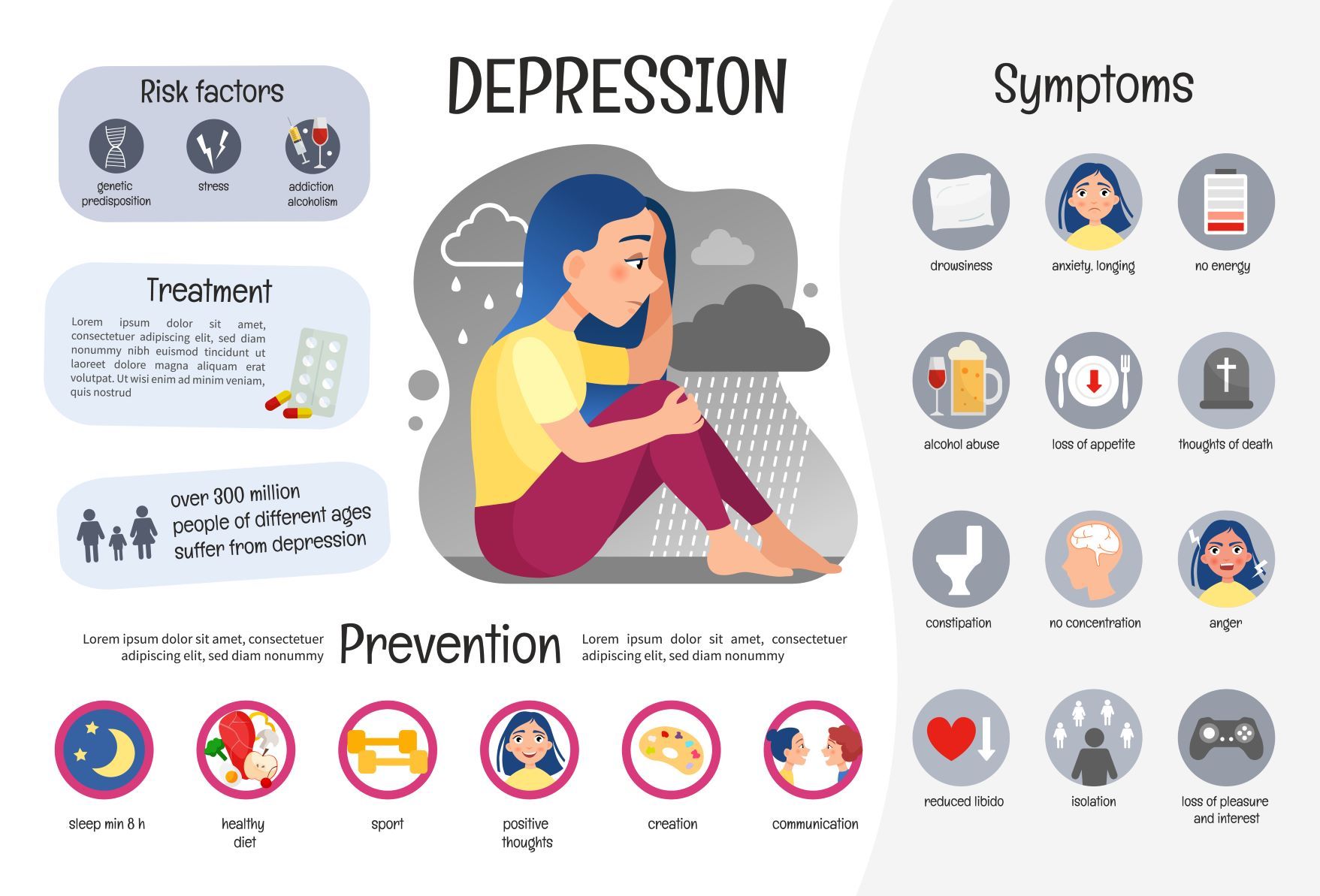Depression is a common mental health issue that affects millions of people around the world. It can be a debilitating condition that impacts all aspects of a person’s life, including their work, relationships, and overall well-being. Recognizing the signs of depression is crucial in order to seek the proper help and support needed to manage and overcome this illness. In this comprehensive guide, we will explore the various signs and symptoms of depression and provide tips on how to cope with this mental health condition.
What is Depression?
Depression is a mood disorder that causes persistent feelings of sadness, hopelessness, and a loss of interest in activities that were once enjoyable. It can affect individuals of all ages and backgrounds and can be triggered by a variety of factors, including genetics, brain chemistry, and life events. Depression is not simply a feeling of sadness that comes and goes; it is a serious mental health condition that requires professional treatment.
Signs and Symptoms of Depression
There are several common signs and symptoms of depression that individuals should be aware of. These include:
Feelings of sadness, tearfulness, or hopelessness
Loss of interest or pleasure in activities once enjoyed
Changes in appetite or weight
Difficulty sleeping or sleeping too much
Feeling tired or lacking energy
Feelings of worthlessness or guilt
Difficulty concentrating or making decisions
Physical aches and pains without a clear cause
Thoughts of death or suicide
If you or someone you know is experiencing several of these symptoms for a prolonged period of time, it is important to seek help from a mental health professional. Depression is a treatable condition, and early intervention can lead to better outcomes.
Coping with Depression
Coping with depression can be challenging, but there are several strategies that can help individuals manage their symptoms and improve their overall well-being. Some tips for coping with depression include:
Seeking professional help from a therapist or psychiatrist
Engaging in regular exercise and physical activity
Practicing relaxation techniques, such as deep breathing or meditation
Maintaining a healthy diet and getting an adequate amount of sleep
Connecting with supportive friends and family members
Setting realistic goals and breaking tasks into smaller, manageable steps
Avoiding alcohol and drugs, as they can worsen depression symptoms
It is important for individuals with depression to remember that they are not alone, and that help and support are available. By taking proactive steps to manage their symptoms and seeking professional treatment, individuals can learn to cope with their depression and lead fulfilling lives.
Conclusion
Depression is a serious mental health condition that can have a profound impact on a person’s life. By recognizing the signs and symptoms of depression and taking proactive steps to seek help and support, individuals can learn to manage their symptoms and improve their overall well-being. If you or someone you know is struggling with depression, it is important to reach out to a mental health professional for assistance. Remember, you are not alone, and there is hope for a brighter tomorrow.

